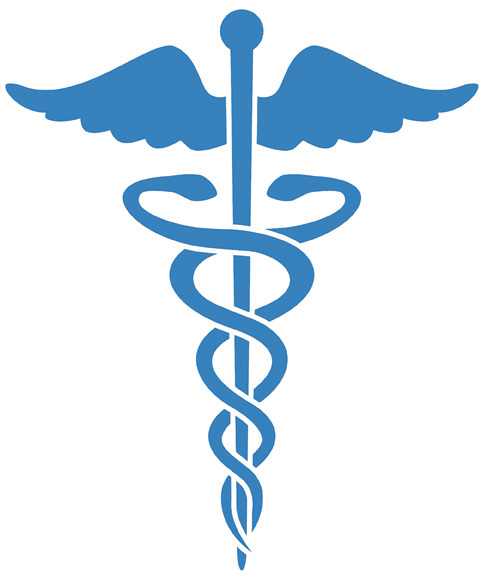The life you might save
In good health
By Dr. Leon Zacharowicz
On March 16, Governor David Paterson signed into law the Family Health Care Decisions Act (FHCDA). The law may be a lifesaver for some and a death sentence for others.
Allow me to explain.
Prior to the passage of this law, in New York State a person who did not have the capacity to make health care decisions was supposed to be treated as if he or she wanted to live. This “default” option affected most incapacitated patients, since only a minority of New Yorkers complete health care proxy forms that designate a surrogate to decide on critical and mundane matters for an incapacitated individual.
The new law allows family members to make important health care decisions - including withholding and even withdrawing life-sustaining treatment on behalf of patients who have lost their ability to make such decisions and who have not prepared advance directives.
The governor was quoted as saying he “could not be more pleased” to sign this law. While other major Orthodox Jewish organizations were silent, leaders of Agudath Israel of America were quite displeased.
Why? Because in many cases the relative may have secular values which conflict with those of the patient and/or be unable to stand up to the myriad of professionals who urge discontinuation of life support.
I have been involved in end-of-life cases in local hospitals and in hospitals as far away as Winnipeg and Edmonton, Canada. All of these cases have involved family members fighting against hospital systems determined to end the life of a disabled individual.
Cases, by and large, were patients with strokes whose very lives were threatened by doctors indoctrinated to believe that euthanasia, voluntary or otherwise, is the final solution to disability.
In one recent case in New Jersey, a physician who considers himself Orthodox testified in court that he was absolutely certain a Jewish patient with a stroke would die within six months, knowing full well that his testimony could result in the termination of life support for that patient (which is what happened). A geriatric specialist and I testified forcefully that this patient was not terminal, but the judge preferred the testimony of the general physician and ordered the plug to be pulled.
In a case in Winnipeg, we were able to convince a judge not to pull the plug on an elderly Orthodox Jewish war veteran, who was awake but unable to speak as a result of brain damage. Against the vehement protests of his adult children, his legal guardians, the doctors were about to end Samuel Golubchuk’s life when Judge Perry Schulman intervened.
In a case that received national attention last year, a hospital in Washington, DC wanted to disconnect a 12-year-old Chassidic boy from his ventilator, again against the vehement opposition of his family.
In another recent case, the Christian parents of a severely brain-damaged baby in Edmonton, Canada were notified by the primary doctor that he intended to disconnect their baby from the ventilator, thus ending the baby’s life, because in the doctor’s view the baby’s life was not worth living.
I have learned from my involvement in these cases that many medical professionals fully believe that if a patient’s quality of life falls below a certain “quality of life” the only morally sound decision is to end the patient’s life. Teams of professionals, doctors, nurses and social workers will “explain” to the family how dire the prognosis is and how the “best” thing to do would be to “let nature take its course,” by “withdrawing” the ventilator, nutrition, and antibiotics, or giving the patient large doses of morphine in what some admit is “terminal sedation.”
Unfortunately, with the occasional exception of Agudath Israel of America, the few of us involved in these battles have been unable to get any major Jewish organization interested in most of these cases. The silence from those who should offer a moral voice is shocking but no longer surprising.
How can those who believe in the sanctity of life have any chance of prevailing against these forces of “progress”? Given the new law, it is simply imperative that each and every one of us who values life assign a health care proxy to make any and all medical decisions in the event that we become incapacitated. Sometimes a spouse may not be ideal. Check out the living will and health care proxy of Agudath Israel of America or those of the Rabbinical Council of America, and consult with your lawyer. Every adult in our community should have a health care proxy. Make copies and give them to each of your doctors, and to your loved ones (they make great Afikomen gifts).
It is also a good idea to get a financial power of attorney to tend to financial decisions while you are unable to do so.
These are admittedly unpleasant matters to attend to, but thanks to our governor’s wake up call, now would be a great time to take care of business. Just think: the life you save might be your own.
Dr. Leon Zacharowicz is a board certified neurologist and the co-founder and coordinator of an annual seminar on Jewish medical ethics (www.j-c-r.org). He tweets on health issues at twitter.com/DrLZ, and can be reached at Linkedin.com/doctorzach or drzach007@aol.com.

 51.0°,
Fog/Mist
51.0°,
Fog/Mist 




